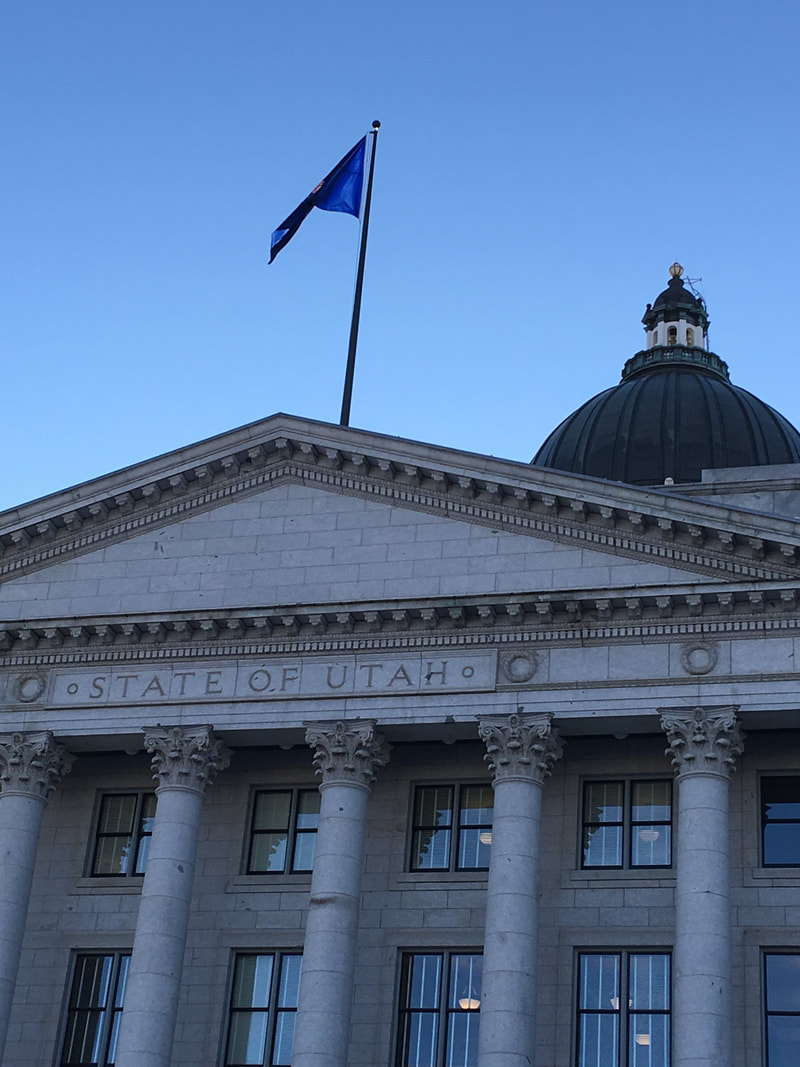| Who is in charge of education in Utah? I’ve asked that question before, not only in this column but to the people who ought to know — state school superintendents, candidates for the state school board, governors and state lawmakers. The answers don’t inspire confidence. They vary from nobody to a little bit of everybody, which is the same thing. Governors and state lawmakers like to campaign on education promises, but they have little power right now to do anything other than cause mischief by requiring more tests or graduation requirements. Voters, meanwhile, are rightly confused when they face decisions for state school board positions and candidates they hardly know (even after listening to debates, some of which I moderated in 2016). On the same ballot, they often face decisions about local school district board officers. |
| | Who sets the vision? Who can champion the kind of change that could improve performance and make the state more competitive not just with other states but in a global race for jobs and innovation? But now I have an even better question. Why does it take perhaps the most liberal state lawmaker to champion an end to the confusion by proposing something conservatives ought to have done long ago? Sen. Jim Dabakis, D-Salt Lake City, surprised a lot of people last week when he introduced SJR16, a joint resolution that, if passed, would allow voters this fall to decide whether to abolish the state school board entirely and put the governor squarely in charge with the power to hire a school superintendent. This is the same Dabakis who is behind a resolution to ratify the Equal Rights Amendment and a bill that would postpone the state’s new .05 blood alcohol limit for DUI from taking place until at least three other states have passed similar laws. I sat in a Senate Education Committee hearing Friday and watched as Dabakis hugged archconservative and Utah Eagle Forum leader, Gayle Ruzicka, a possible sign of the apocalypse. I listened to Utah Bankers Association President Howard Headlee praise Dabakis for his measure because it would give “100 percent accountability to someone” and because it would let Utahns know, “The buck stops somewhere.” And then I heard the Utah Education Association oppose Dabakis. It was like some kind of surreal opposite day. Dabakis told me the lack of leadership and accountability in public education in Utah is “a dirty little secret.” He said he is championing the change because, “Sometimes it just falls to me to say the emperor doesn’t have any clothes. No one is at the wheel.” Dabakis, who already has announced he won’t seek re-election, believes few voters know anything about the state school board candidates on the ballot, but “everyone knows who the governor is.” He said he is fully aware he would be giving a lot of power to what looks to be a Republican governor for the foreseeable future. One of those state school board members, Spencer Stokes, also testified in favor of the measure, saying most people probably think the governor is in charge of education, when all he can do is sign or veto legislation. “But simply, there is no one that can be held accountable,” he said. Opponents of the resolution argued that voters do indeed make informed decisions, having studied the candidates’ positions. They argued the board makes important policy decisions and that future governors may not be engaged or interested in education. Some say a recent legislative decision to make state school board races partisan will engage voters and lead to better candidates. But we already hold partisan elections for county surveyor, auditor, recorder and treasurer. Having those candidates affiliated with political parties hasn’t made decisions any easier for voters. Frankly, those arguments aren’t convincing. In a perverse way, it may be good to have a system so complicated no one with an agenda can hijack it, but when schools are struggling to be globally competitive amid a growing and diverse population, a system that lets everyone pass the buck makes little sense. Dabakis is right. Putting the governor and his or her appointed superintendent in charge would bring much-needed focus and accountability to public education in Utah. The Education Committee passed his resolution unanimously. Let’s hope it makes it all the way in the few remaining days of the session. Once Dabakis leaves, it’s not clear anyone will be left with the courage to push it again next year. |


 RSS Feed
RSS Feed

